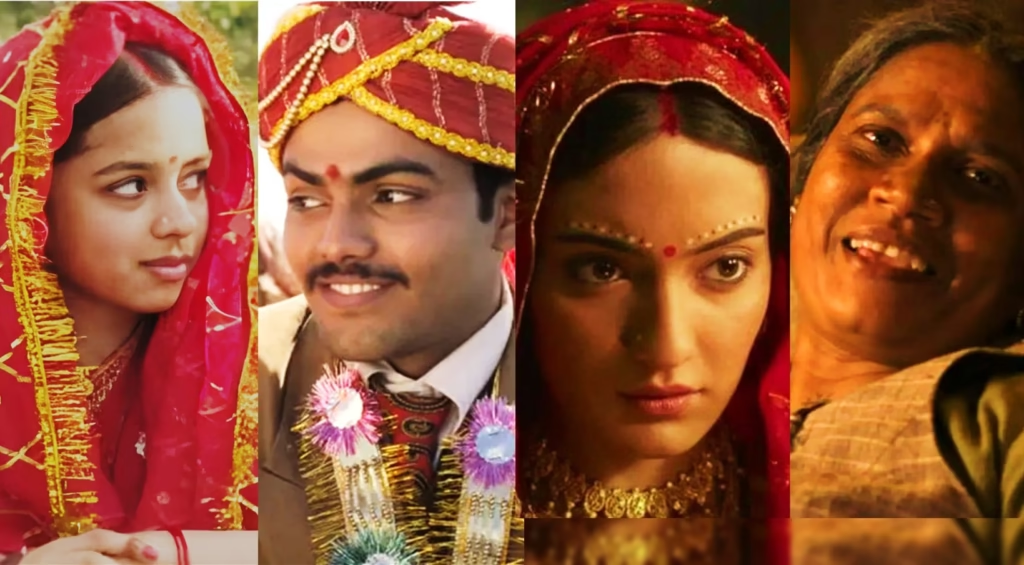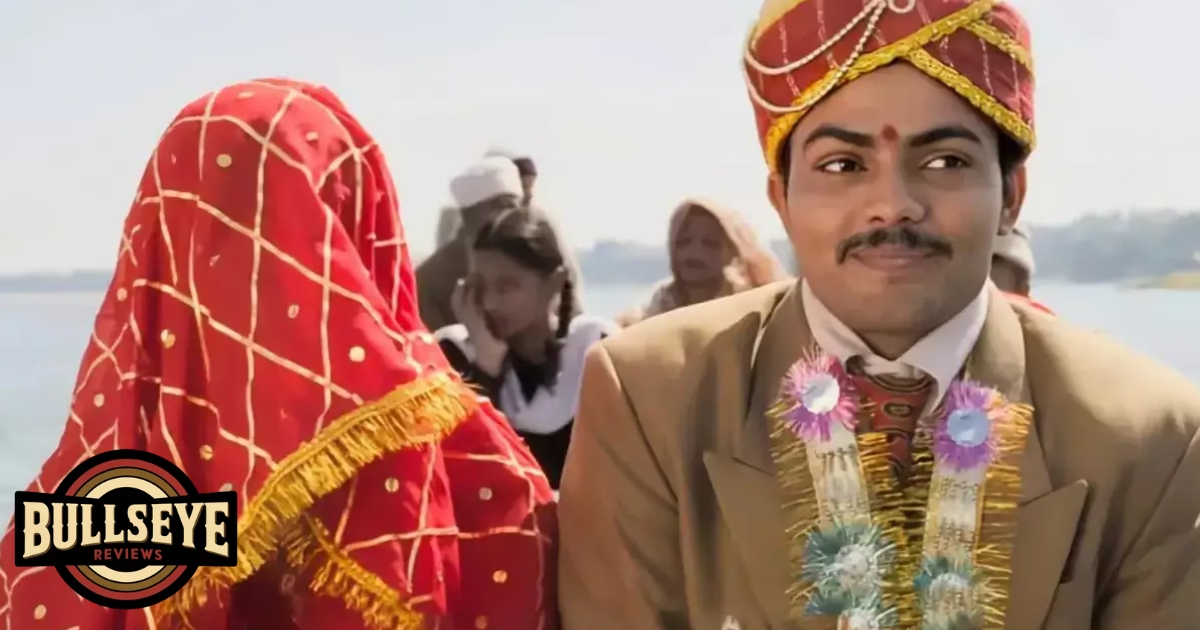A Light-Hearted Train Ride Into Patriarchy
Picture a crowded train filled with newlywed couples, each bride hidden behind a red veil. In the chaos of arrival, a simple mistake—one groom grabbing the wrong bride—sets off a chain of unexpected events. This mix-up becomes the catalyst for Laapataa Ladies, marking Kiran Rao’s compelling return to the director’s chair after more than a decade. Backed by Aamir Khan Productions, this Netflix dramedy spins a sharp, funny, and touching satire on small-town Indian society, exploring womanhood, agency, and dreams, all under the comforting guise of a comedy of errors.
The film opens in the fictional state of Nirmal Pradesh, where Deepak (Sparsh Shrivastava), a freshly married groom, mistakenly brings home the wrong bride, Pushpa (Pratibha Ranta), instead of his actual wife, Phool (Nitanshi Goel). What follows is a heartwarming and revealing tale of mistaken identities, stubborn traditions, and unexpected awakenings.
A Veil That Unveils Society
Rao uses the red veil as a potent metaphor—women hidden in plain sight, faceless in a patriarchal order that demands obedience, not identity. But Laapataa Ladies doesn’t sermonize. Its commentary is embedded in delightful scenes, dry humour, and smart dialogue.

Phool’s journey begins at a railway station, left behind and helpless, only to find refuge with the fiercely independent Manju Maai (Chhaya Kadam), a tea-seller with a past and plenty of perspective. On the other hand, Pushpa—now unintentionally planted in Deepak’s household—slowly discovers a strange kind of freedom, one that her actual marriage would likely have denied her.
Dialogues That Leave a Mark
The film’s strength lies in its script, co-written by Biplab Goswami and Sneha Desai, with dialogue contributions from Divyanidhi Sharma. It’s packed with punchlines that bite and warm the heart in equal measure. One standout moment is Manju Maai’s bold line:
“Women can farm and cook. We can give birth and raise children. If you think about it, we don’t really need men at all.”
It’s these quiet assertions, tucked into tea stalls and train compartments, that make Laapataa Ladies feel revolutionary in the most grounded way.
Feminism with a Smile
The film doesn’t villainize men but gently critiques the system they unknowingly perpetuate. Deepak is earnest, well-meaning, but clueless. Even the corrupt cop Shyam Manohar (played with charming ambiguity by Ravi Kishan) is layered—part opportunist, part reluctant hero. His journey, too, becomes a subtle commentary on how patriarchy limits everyone, not just women.
By the end, Pushpa dreams of studying organic farming. Phool learns to stand on her own. And Deepak—still in pursuit of his wife—starts seeing women not just as veiled figures but as people with hopes and names.
Star Performances in Every Frame
This isn’t a star-driven movie, but the cast shines with authenticity.
- Nitanshi Goel as Phool is innocent yet spirited, radiating vulnerability and resolve.
- Pratibha Ranta brings layers to Pushpa, especially as she moves from fear to self-awareness.
- Ravi Kishan is delightful as the greedy-yet-honest cop, stealing every scene he’s in.
- Chhaya Kadam as Manju Maai delivers a performance full of grit, sass, and soul.
- Even side characters like the constable Dubey-ji and Deepak’s family add warmth and humour in just the right doses.
Technical Highlights and Aesthetic Choices
Direction: Kiran Rao’s biggest success lies in her restraint. She lets characters breathe, emotions simmer, and drama unfold without resorting to melodrama.
Music: Ram Sampath’s soundtrack—featuring soulful tracks like Dheeme Dheeme and Beda Paar—enhances the emotional core of the film.
Cinematography: Vikash Nowlakha captures rural India with affection and detail, turning mundane spaces into places of introspection.
Editing: While a tighter first act would’ve elevated the pacing, the final 30 minutes more than make up for it.
Final Verdict ⭐️⭐️⭐️⭐️ (4/5 Stars)
Laapataa Ladies is that rare gem—charming, thought-provoking, and thoroughly entertaining. With no big names, no glossy sets, and no punchy item songs, it still holds your attention with its honesty and humour. It gently tells women: you are not lost. You just haven’t been seen yet.
Watch it with your family. Watch it alone. But don’t miss it.

